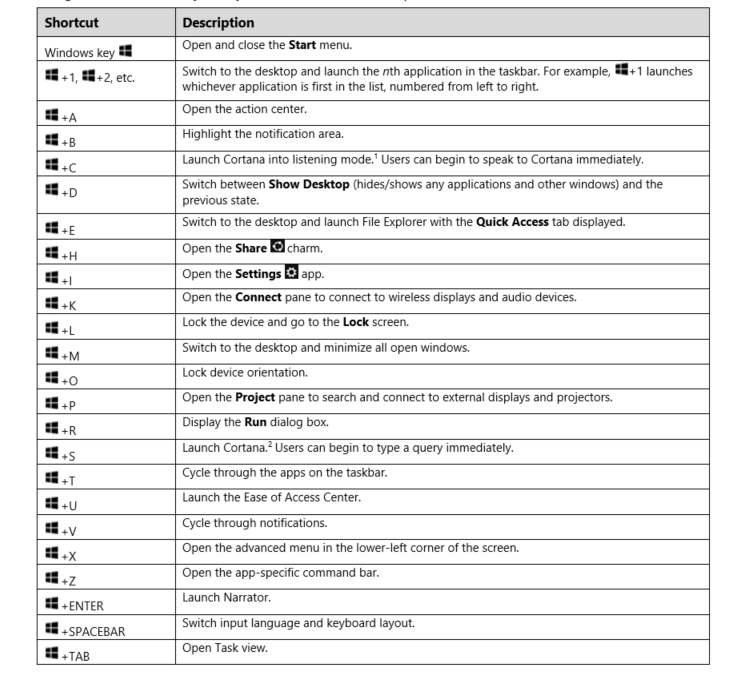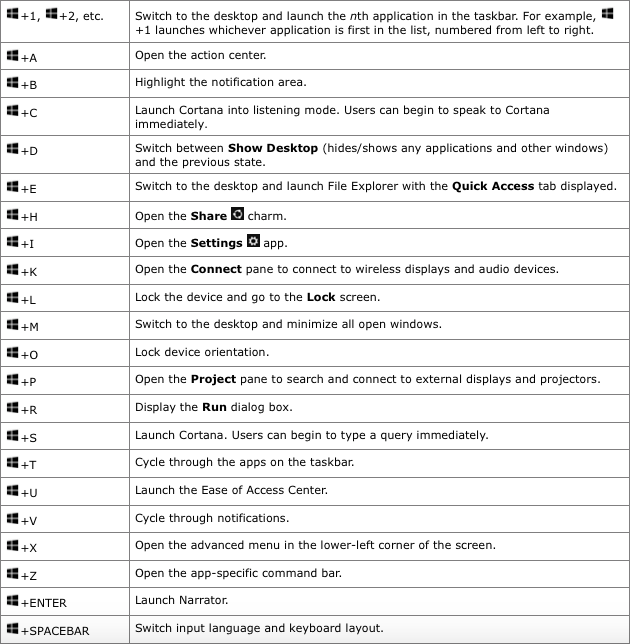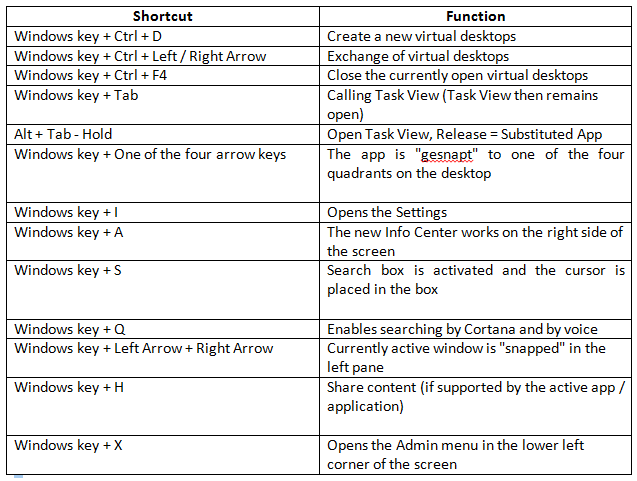

- #WINDOWS 10 KEYBOARD SHORTCUTS TILE DESKTOP HOW TO#
- #WINDOWS 10 KEYBOARD SHORTCUTS TILE DESKTOP FOR WINDOWS 10#
- #WINDOWS 10 KEYBOARD SHORTCUTS TILE DESKTOP WINDOWS 10#
DeskScapes Personalize your desktop wallpaper with animated pictures and video.
#WINDOWS 10 KEYBOARD SHORTCUTS TILE DESKTOP WINDOWS 10#
Fences 4 Automatically organize your desktop apps, files, and folders on Windows 10 and 11. Start11 Customize the Start Menu and Taskbar in Windows 10/11. Numeric keys have Num before the actual number key.Software Object Desktop Your complete Windows customization suite. Remember that any key you press on the keyboard will automatically add Ctrl + Alt to the key you pressed.
#WINDOWS 10 KEYBOARD SHORTCUTS TILE DESKTOP HOW TO#
How to use all of the Clipboard features in Windows 10 My favorite left hand Windows keyboard shortcuts
#WINDOWS 10 KEYBOARD SHORTCUTS TILE DESKTOP FOR WINDOWS 10#
Windows logo key shortcuts for Windows 10 So the following articles cover almost all Keyboard shortcuts there are. There are so many Keyboard shortcuts in Windows 10 that I cannot list them all here. Using the Clipboard, you can also copy, cut or paste text or images too. Just by pressing two or more keys simultaneously on your keyboard, you can bring up File Explorer or the Run dialog box. You do not have to go hunting for a Desktop icon or open the Start menu. When it comes right down to it, Keyboard shortcuts are the fastest way to open various programs and settings in Windows 10. How to customize the Start menu in Windows 10 Keyboard shortcuts But if you want to learn more on how to customize the Start menu, check out the following article. To learn how to create File and Internet shortcuts quickly, check out the following article.Ĭreating shortcuts in the Start menu's application list can be challenging only because the location where Start menu shortcuts is hidden by default. url extensions.įile and Internet shortcuts on the Desktop, Taskbar, and the Tiles section of the Start menu are relatively easy to create. File and Internet shortcutsĪs I said before, File and Internet shortcuts are just files with different extensions. You can even add keyboard shortcuts to File shortcuts on your Desktop. Usually, these are applications or actions that you use frequently. The third type of shortcut ( Keyboard) is when you use a combination of keys on your keyboard to start a program or action. Shortcuts on the Start Menu do not have the curled arrow. You can spot one of these types of shortcuts by the curled arrow overlay in the lower left-hand corner of the shortcut's icon on the Desktop or File Explorer. The first two types of shortcuts ( File and Internet) are small files that contain a link to a specific file, folder, or website. Keyboard - which is when you press two ( 2) or more keys on the keyboard simultaneously.Internet - which contains a link to a file or website on the Internet.File - which contains a link to a program, file, or folder.

Now, there are three ( 3) kinds of shortcuts in Windows 10 How to fix the Windows 10 black screen with a white mouse cursor The different types of Windows 10 shortcuts You can manually start File Explorer and here is how to do it.

Geek Tip: If you ever start Windows 10 and get to a black screen with just a white cursor arrow, that is a sign that File Explorer did not start.

All of the shortcuts I will be discussing are directly related to File Explorer. And you would be right.īut File Explorer is also responsible for displaying the Start Menu, Taskbar, and Desktop. When you hear File Explorer, you probably think of the file manager program you navigate to find your documents, pictures, and music. Windows 95 had a new graphical user interface called Windows Explorer ( now named File Explorer). All three types of shortcuts I will be discussing in this article were introduced in 1995 with the release of Windows 95. Let's take a closer look at the different types of shortcuts you can have on your Windows 10 computer.īefore we proceed any further, let's take a look at the history of shortcuts in Windows. When it comes to using a Windows-based computer, accessing programs, folders, and files quickly is essential for productivity.


 0 kommentar(er)
0 kommentar(er)
